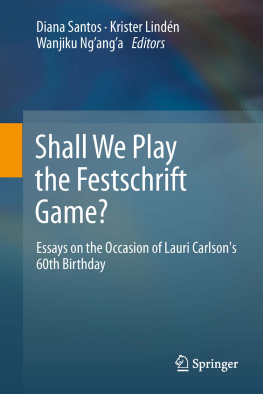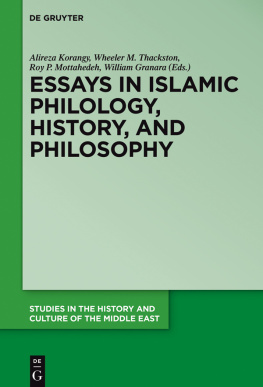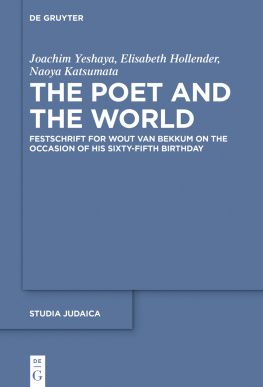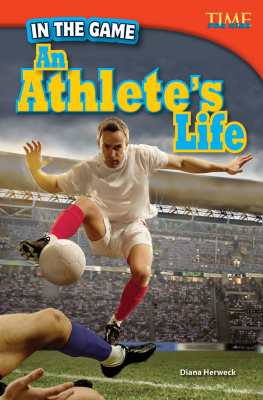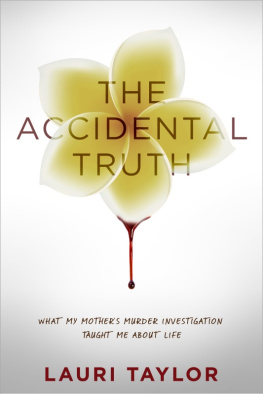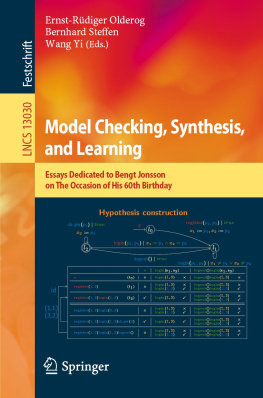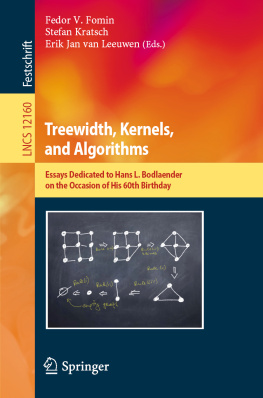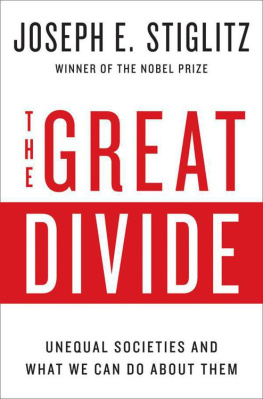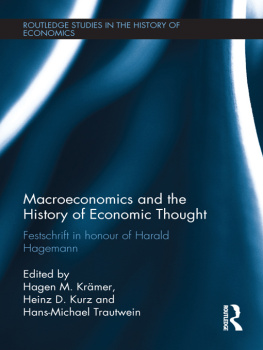Diana Santos , Krister Lindn and Wanjiku Nganga (eds.) Shall We Play the Festschrift Game? 2012 Essays on the Occasion of Lauri Carlson's 60th Birthday 10.1007/978-3-642-30773-7_1 Springer-Verlag Berlin Heidelberg 2012
In his article Should we impeach armchair linguists?, Phillips () asked whether there is a crisis in generative linguistics. Several recent critiques had claimed that the empirical foundations of generative linguistics are weak due to the reliance on informally gathered grammaticality judgments drawn from the intuitions of the researcher. Here is Phillips answer:
The claim is not just that one finds questionable examples in linguistics papers, but that lax data-collection standards have led to the growth of theories that are based upon bogus data. If these charges stick, then we face a genuine crisis. In order for there to be a crisis, however, it would need to be the case that (i) Intuitive judgments have led to generalizations that are widely accepted yet bogus. (ii) Misleading judgments form the basis of important theoretical claims or debates. (iii) Carefully controlled judgment studies would solve these problems. Although I sympathize with the complaint that one can find many cases of poor data collection in the linguistics literature, I am not sure that any of (i)(iii) is correct. A surprising number of the critiques that I have read present no evidence of the supposed damage that informal intuitions have caused, and among those that do provide specific examples it is rare to find clear evidence of the lasting impact of questionable judgments. (Phillips : 3)
Phillips thus held that criteria (i, ii) have not been satisfied. As for (iii), he argued that experimental data from large-scale rating studies and acceptability tests are likely to be less of a panacea than we are sometimes led to believe even if he acknowledged the value of experimentation as a supplementary data-gathering method, alongside introspection.
My thesis here is that (i) and (ii) are in fact satisfied. My test-case will be one of the fundamental claims of generative grammar, articulated by Chomsky (: 65), that English is not a finite-state language, plus one of its corollaries. Here is Chomskys whole argument which I shall call English-not-FSL :
Turning now to the English language, we find that there are infinite sets of sentences with just the mirror-image properties of [the artificial language] L1. For example, let S1,S2,S3,, be declarative sentences. Then the following are all English sentences:
(1)
(iii)
The man who said that S5, is arriving today.
These sentences have dependencies between if and then, either and or, man and is. But we can choose S1, S3, and S5 in (1) as (1i), (1ii), or (1iii) themselves. Proceeding to construct sentences in this way, we arrive at sentences with dependency sets of more than any fixed number of terms, just as in the case of L1. English is therefore not a finite-state language. (Chomsky : 65)
From this an important corollary can be deduced: syntactic recursion, especially nested recursion (center-embedding) is unlimited. This I call Unlimited-center-embedding . Both English-not-FSL and Unlimited-center-embedding have played an enormous role in the theoretical genesis of generative grammar. Note that the truth of Unlimited-center-embedding is the one and only criterion deciding whether natural language syntax is finite-state or context-free, i.e. whether English-not-FSL is true. If Unlimited-center-embedding is false, English-not-FSL too is false and natural language syntax is (in principle) of finite-state character.
It would be easy to list hundreds of scholarly articles, text books and overviews from linguistics and neighboring disciplines where English-not-FSL and Unlimited-center-embedding are taken to be truths established by the early Chomsky. Here are some representative examples from theoretical, mathematical, computational and psycholinguistics:
First we will observe that English has characteristics that put it outside the class of regular languages. Then we will consider a simple theory of syntax that is essentially like the theory of finite automata or finite state grammars, and conclude that the theory is inadequate (Chomsky : 187)
The demonstration that English is not a finite automaton language was one of the first results to be achieved in the nascent field of mathematical linguistics (Chomsky : 478479)
Chomsky (: 152)
Every computational linguistics graduate student knows, from the first textbook that introduces the Chomsky hierarchy, that English has constructs, such as center embedding, that cannot be described by any finite-state grammar. (Hobbs et al. : 383)
The fact that a sentence with, say, ten dependent clauses is unlikely to be spoken and would be impossible to understand at first hearing does not detract from Chomskys argument that a recursive (i.e. infinitely repeatable) rule of embedding must, in principle, be allowed for in English grammar. Clearly, it would be arbitrary to say that embeddings can only be carried out three times or that sentences can only be of a certain length. (Greene : 26)
Chomsky obviously intuited his examples (1iiii) as well as his subsequent claims about sentences of unlimited embedding complexity; at least he did not report that his analysis was based either on observation of language use (i.e. corpus work) or on experimentation. Surely English-not-FSL and Unlimited-center-embedding are widely accepted generalizations in the sense of Phillips criterion (i), and also important theoretical claims as meant by his criterion (ii). Many (all?) generative linguists still subscribe to Unlimited-center-embedding and English-not-FSL in the spirit just quoted, despite counterarguments of critics like Levelt (), that the faculty of language in the narrow sense (FLN) only includes recursion, is an extended variant of Unlimited-center-embedding.
The crucial question is whether Unlimited-center-embedding is true. Using the third possible data-gathering method, extensive corpus study of i.a. English, Finnish, German, Latin and Swedish, I demonstrated in Karlsson (), the most common type of multiple center-embedding is self-embedding with two relative clauses; this is the only type of central self-embedding that occurs.
My interpretation of these empirical data is that they falsify the hypothesis of Unlimited-center-embedding and considerably downplay the general significance of recursion, especially its theoretically most important manifestation as nesting (i.e. center-embedding); of course, left- and right-branching recursion is equal to iteration. Consequently, English-not-FSL too is false, English (and other languages) are regular languages. Upholding the idea of Unlimited-center-embedding at competence level, and relegating the restrictions on center-embedding to the domain of performance, begs the question and makes the hypothesis of Unlimited-center-embedding immune to criticism.
Finally, let us reiterate Phillips two first criteria:

